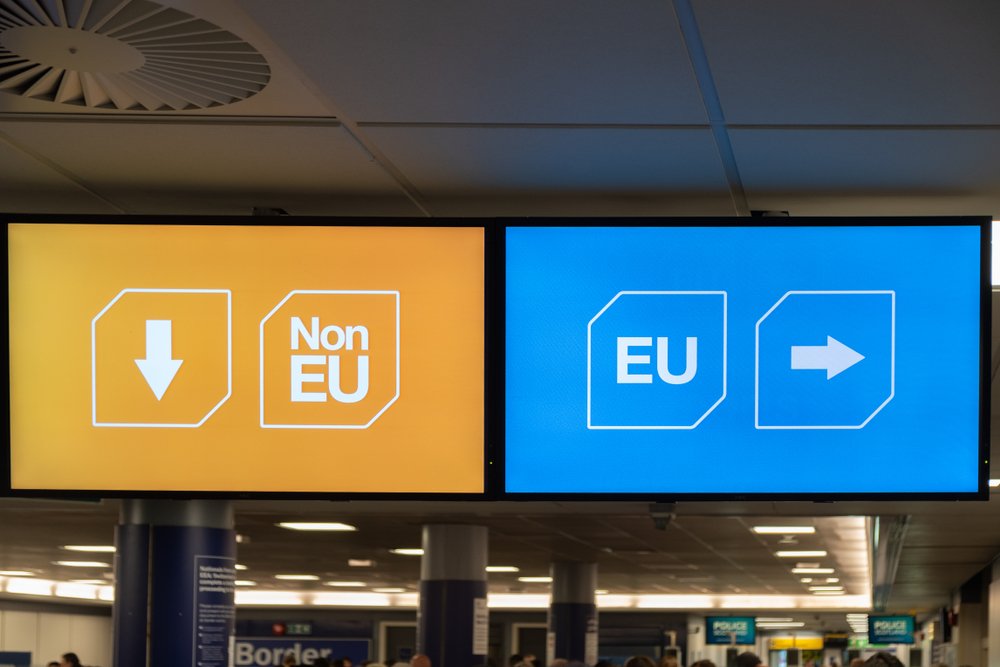
Those who are living in the European Union may have family members living abroad. If they’re nationals of a non-EU country, they may need more than a passport to enter an EU country.
It really depends on several conditions, such as the country they’re coming from, the country they want to visit, and what kind of family ties they have with the person receiving them in the EU country.
What is a core family member?
Generally, close relatives of EU citizens are allowed to travel along with them. By law, they have the right to even move with the EU citizen to an EU country. But in order to do this, they must be able to prove that they have an immediate family relationship with the EU citizen. This is what the European Union calls a “core family member”.
- Core family members are:
- Spouse.
- Children.
- Dependent parents.
- Dependent grandparents.
- Civil and registered partners, including same-sex civil unions, in countries that consider civil unions or registered partnerships equivalent to marriage in legal terms.
There can be exceptions for non-EU extended family members under certain conditions but the EU citizen must specifically request it to the host country.
- Extended family members are:
- Aunts and uncles.
- Cousins.
- Siblings.
- A romantic partner in countries where registered partnerships are not considered equivalent to marriage.
How to know if your relatives need a visa to visit you or stay with you
There are cases in which the core family members of an EU citizen may need something more than a valid passport and a document that serves as proof of the family relationship. They may need an entry visa.
Generally, nationals from the third countries on the list of Annex II of the Regulation (EU) 2018/1806 of the European Parliament and of the Council are exempt from the requirement of an entry visa if they’re going to stay in the EU for less than 90 days in any 180-day period.
- These countries are:
- Andorra
- Antigua and Barbuda
- Albania
- Argentina
- Australia
- Bahamas
- Barbados
- Bosnia and Herzegovina
- Brazil
- Brunei
- Canada
- Chile
- Colombia
- Costa Rica
- Dominica
- East Timor
- El Salvador
- Georgia
- Grenada
- Guatemala
- Honduras
- Hong Kong
- Israel
- Japan
- Kiribati
- Macao
- Malaysia
- Marshall Islands
- Mauritius
- Mexico
- Micronesia
- Moldova
- Monaco
- Montenegro
- Nauru
- New Zealand
- Nicaragua
- North Macedonia
- Palau
- Panama
- Paraguay
- Peru
- Saint Kitts and Nevis
- Saint Vincent and the Grenadines
- Samoa
- San Marino
- Santa Lucia
- Serbia (except for holders of Serbian passports issued by the Serbian Coordination Directorate)
- Seychelles
- Singapore
- Solomon Islands
- Tonga
- Trinidad and Tobago
- Tuvalu
- Ukraine
- United Arab Emirates
- United States of America
- Vatican City
- Vanuatu
- Venezuela
Instead of a visa, your family member may enter your country with a residence card as an EU national family member or a residence document issued by an EU country. This enables them to travel together with the EU citizen with whom they have a family relationship, too.
If they have a residence document from a Schengen country, they will need a visa if they’re traveling to Ireland. Other non-Schengen countries (Bulgaria, Romania, and Cyprus) usually consider certain documents equivalent to national visas. Therefore, your family members will not be asked for a visa there if they come from a Schengen country.
Movement is free between Schengen countries as they’ve mutually abolished their internal borders so they won’t need a visa if they come from a Schengen country and you live in a Schengen country, too.
They will need a visa if they want to enter Switzerland with a non-EU family member’s residence card issued by a non-Schengen acquis country.
Those who have an EU family member’s residence card are forced to travel with their EU citizen’s close relative or be traveling to the host country exclusively to join him or her. They can’t use it for tourism or other purposes by themselves.
How to apply for a visa
If your family member needs an entry visa to visit you in your EU country, they can ask for a short-stay visa in the host country’s embassy or consulate. These visas last for 90 days and they’re free of charge. In the Schengen Area, it takes around 15 days to issue them. Non-Schengen countries should issue visas as soon as possible.
- The documents they may need to apply for the visa are:
- A valid passport that proves their identity and nationality.
- A marriage certificate, birth certificate, or whichever document proves the family ties with the EU citizen.
- Any document proving that their family member who is an EU citizen resides legally in an EU country.
- A declaration stating that they will be traveling along with a family member who is an EU citizen.